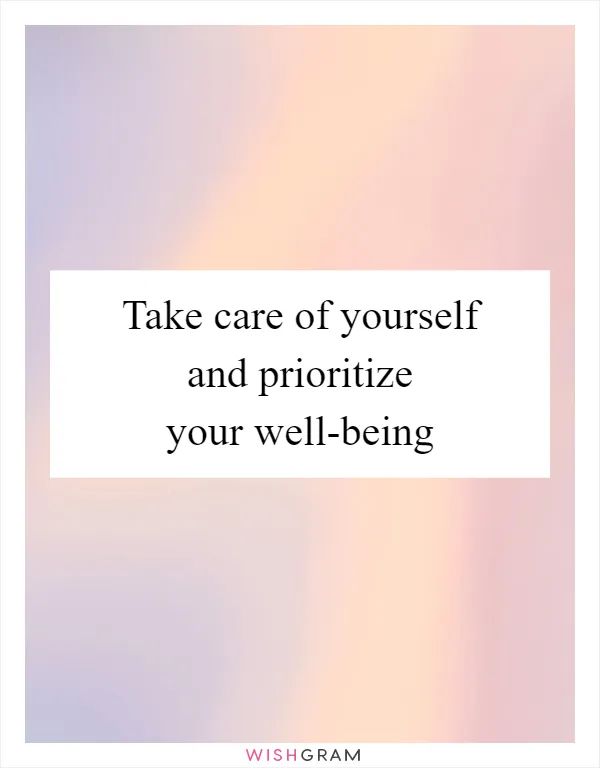Take care of yourself and prioritize your well-being
It's important to take care of yourself and prioritize your well-being. Life can get busy and overwhelming, but remember that your health and happiness should always come first. Taking care of yourself means making choices that promote your physical, mental, and emotional well-being. Here are some simple yet effective ways to prioritize yourself:
1. Get enough sleep: Adequate sleep is crucial for your overall well-being. Aim for 7-9 hours of quality sleep each night. Establish a bedtime routine, create a comfortable sleep environment, and avoid electronic devices before bed to ensure a restful night's sleep.
2. Eat nutritious meals: Nourish your body with a balanced diet. Include plenty of fruits, vegetables, whole grains, lean proteins, and healthy fats in your meals. Stay hydrated by drinking enough water throughout the day. Remember, what you put into your body directly impacts your energy levels and overall health.
3. Stay physically active: Regular exercise is not only beneficial for your physical health but also for your mental well-being. Find activities you enjoy, whether it's going for a walk, dancing, swimming, or practicing yoga. Aim for at least 30 minutes of moderate-intensity exercise most days of the week.
4. Practice self-care: Take time for yourself and engage in activities that bring you joy and relaxation. It could be reading a book, taking a bath, listening to music, or pursuing a hobby. Self-care helps reduce stress, improves mood, and rejuvenates your mind and body.
5. Set boundaries: Learn to say no when you feel overwhelmed or when something doesn't align with your priorities. Setting boundaries allows you to protect your time and energy, ensuring you have enough for yourself and the things that truly matter to you.
6. Manage stress: Stress can take a toll on your well-being, so it's important to find healthy ways to manage it. Practice stress-reducing techniques such as deep breathing exercises, meditation, or journaling. Engaging in activities that you find relaxing can also help alleviate stress.
7. Connect with loved ones: Surround yourself with positive and supportive people. Spend quality time with family and friends who uplift you and make you feel good. Social connections are vital for your mental and emotional well-being.
8. Seek professional help if needed: If you're struggling with your mental health or facing challenges that seem overwhelming, don't hesitate to reach out to a healthcare professional. They can provide guidance, support, and appropriate treatment options to
